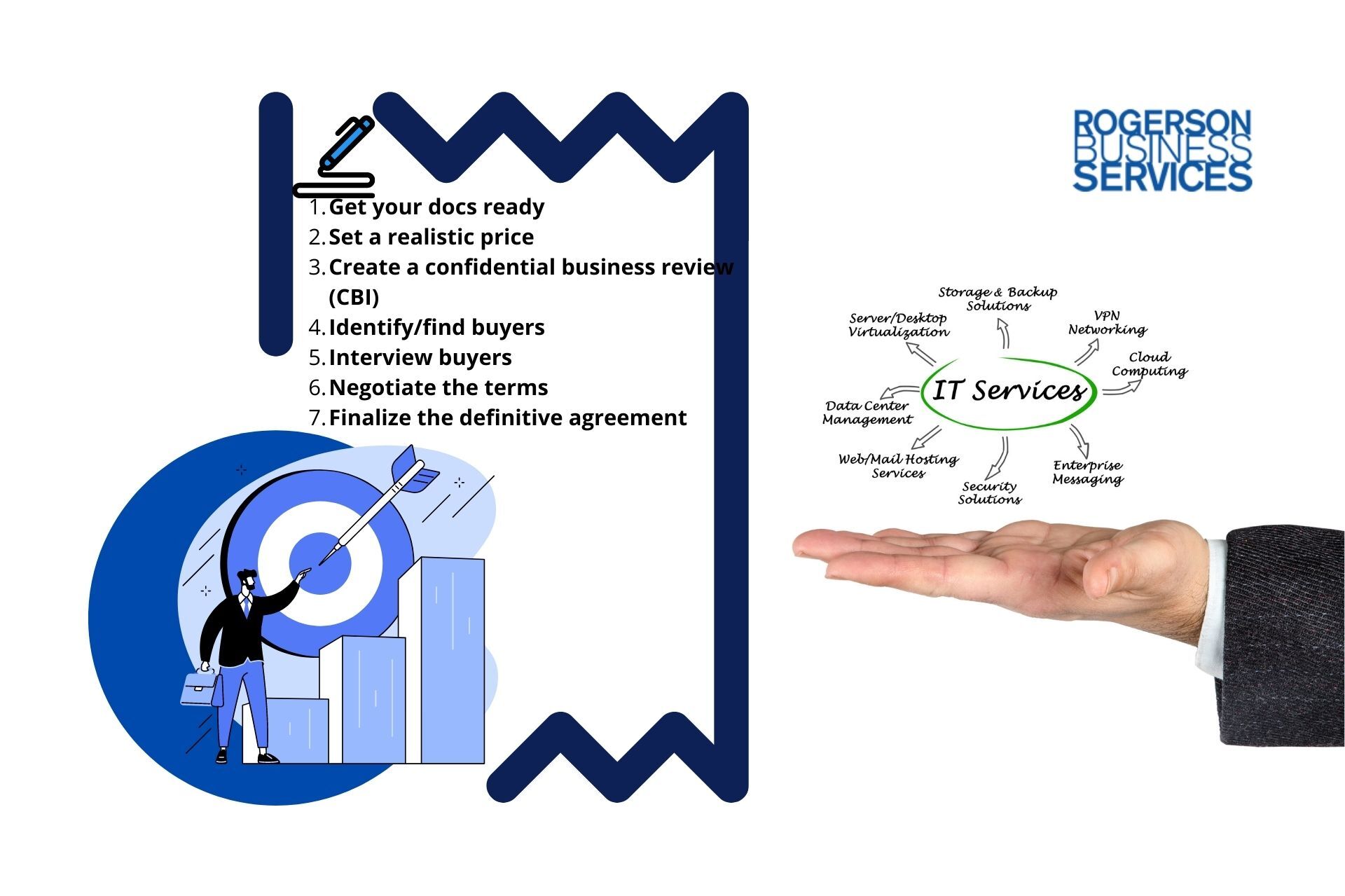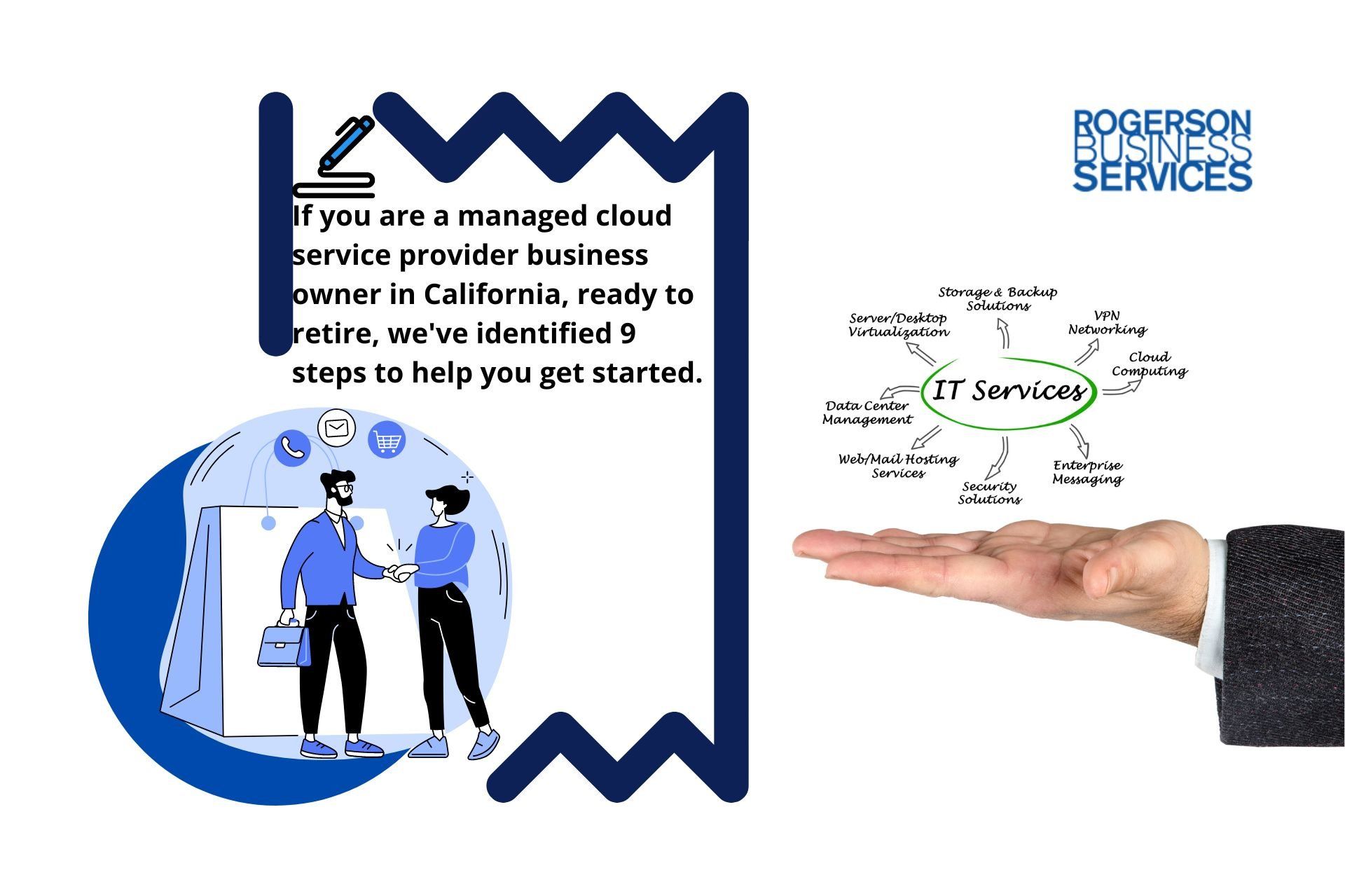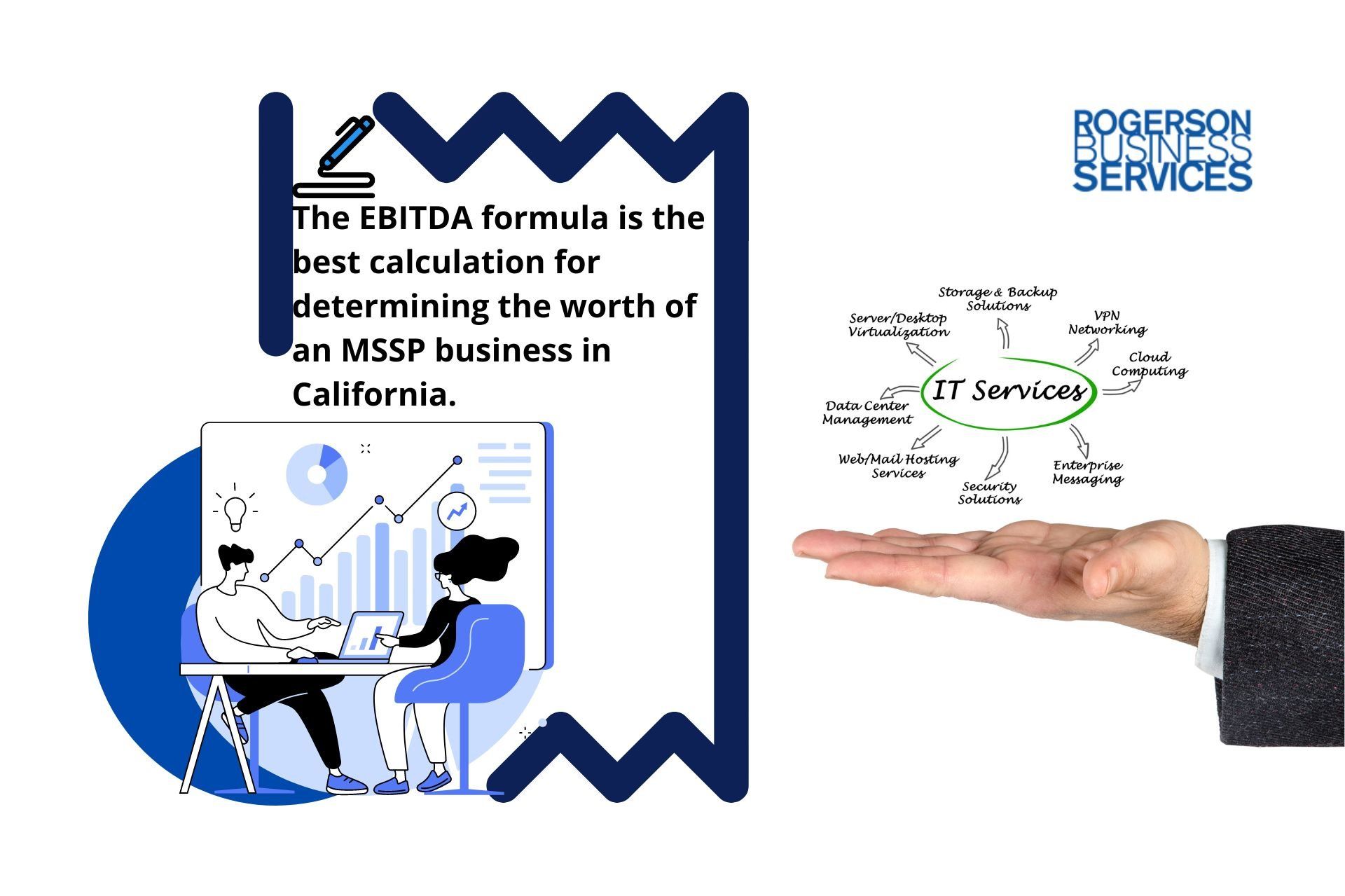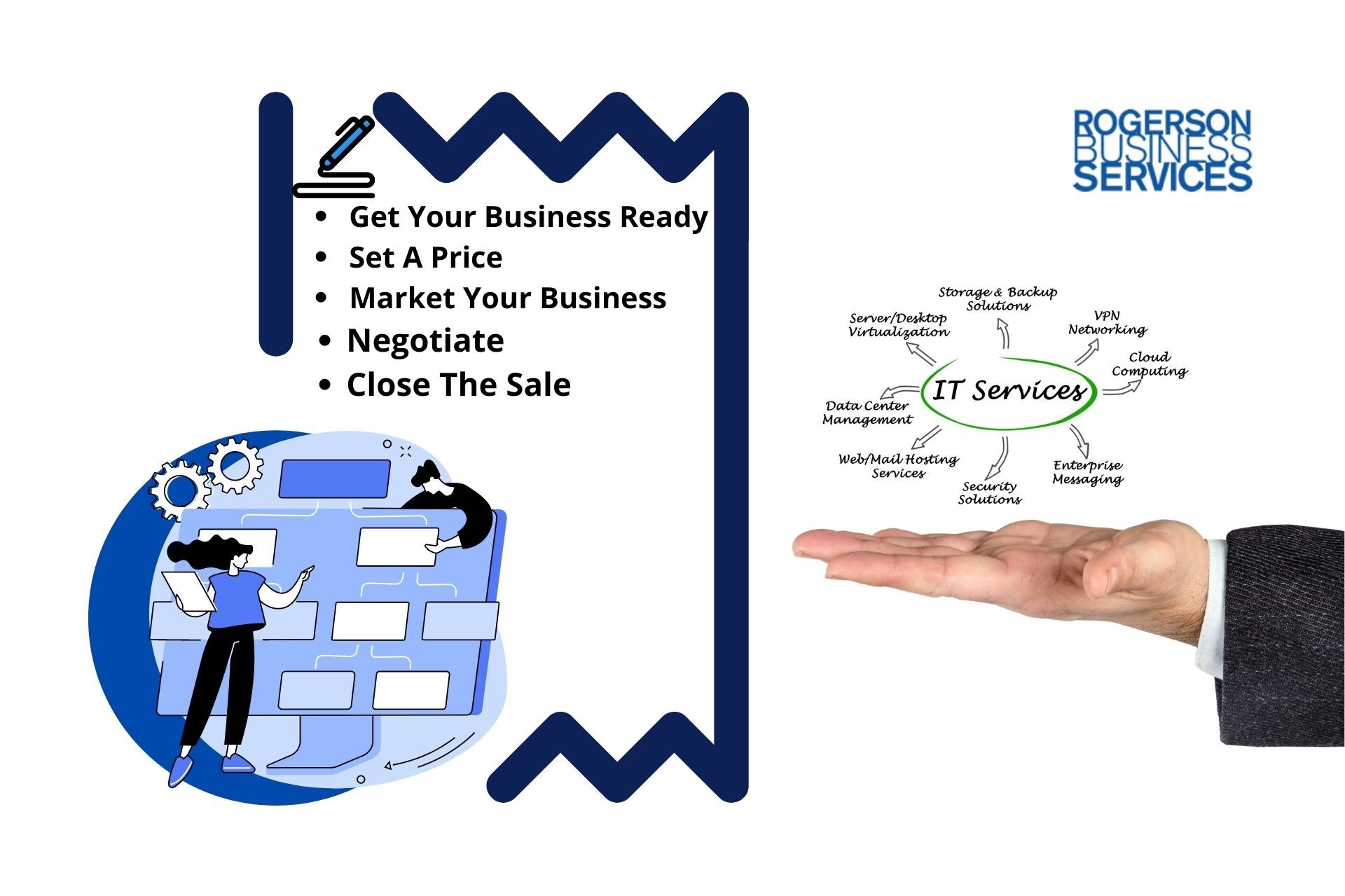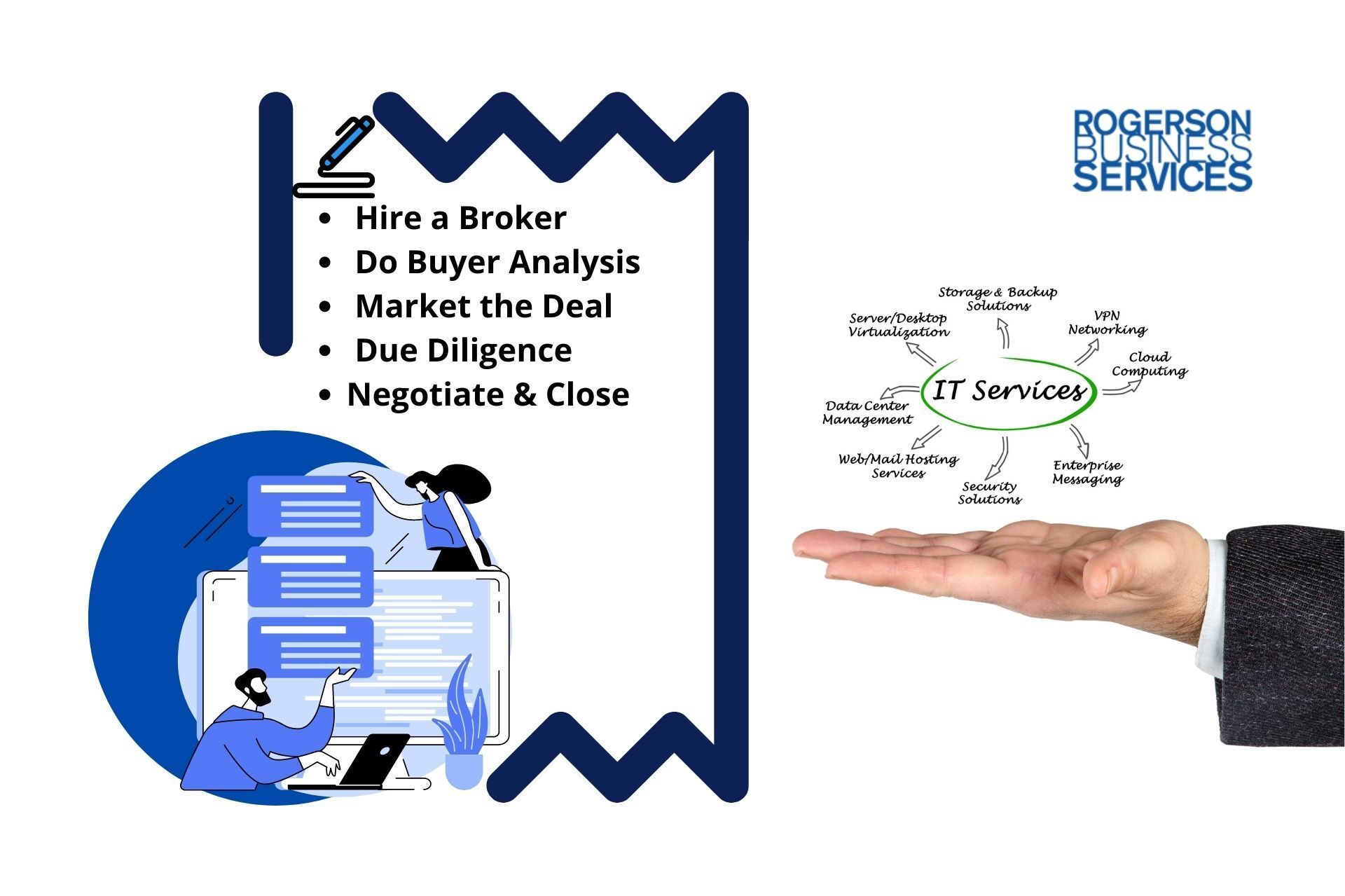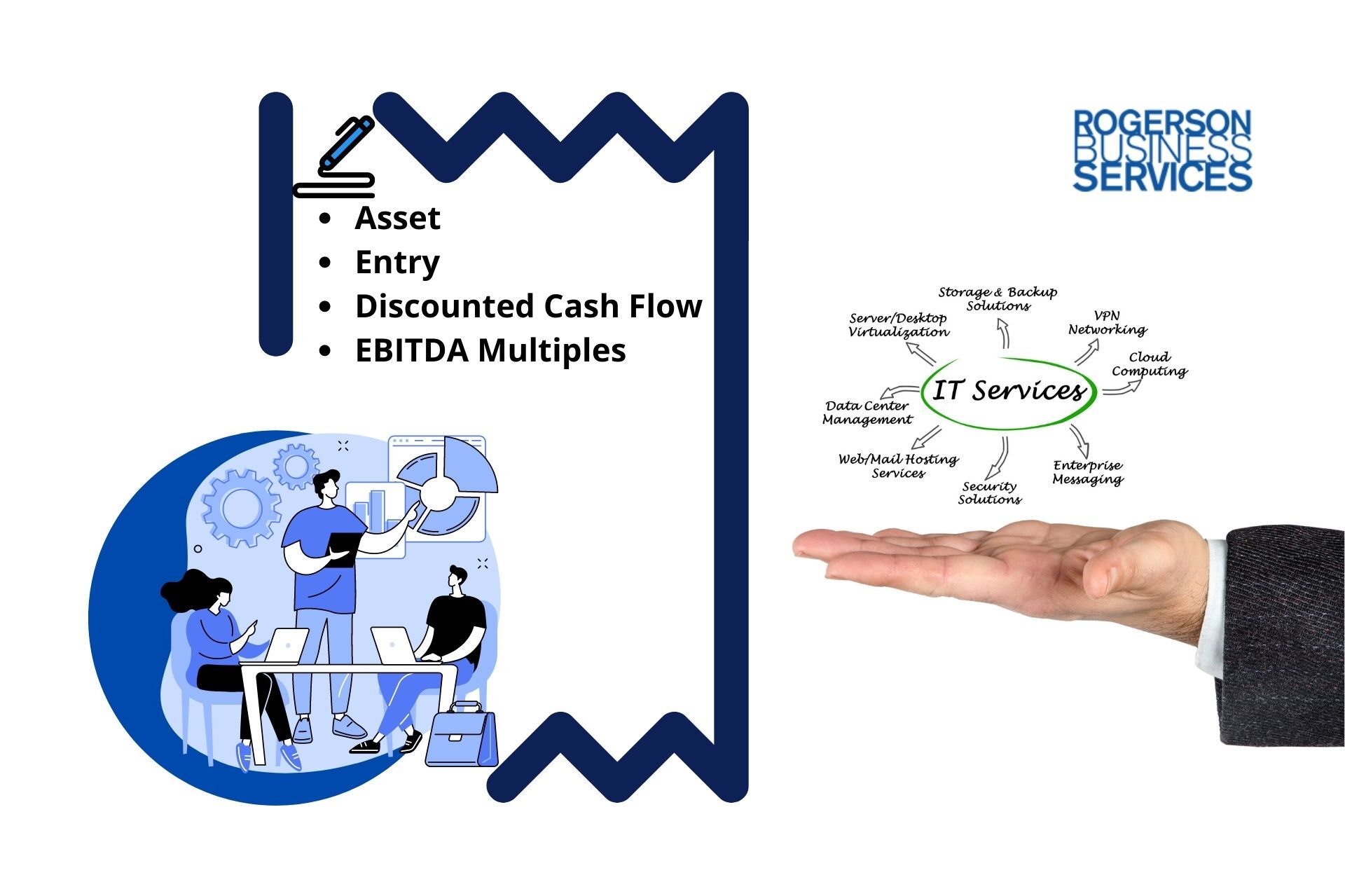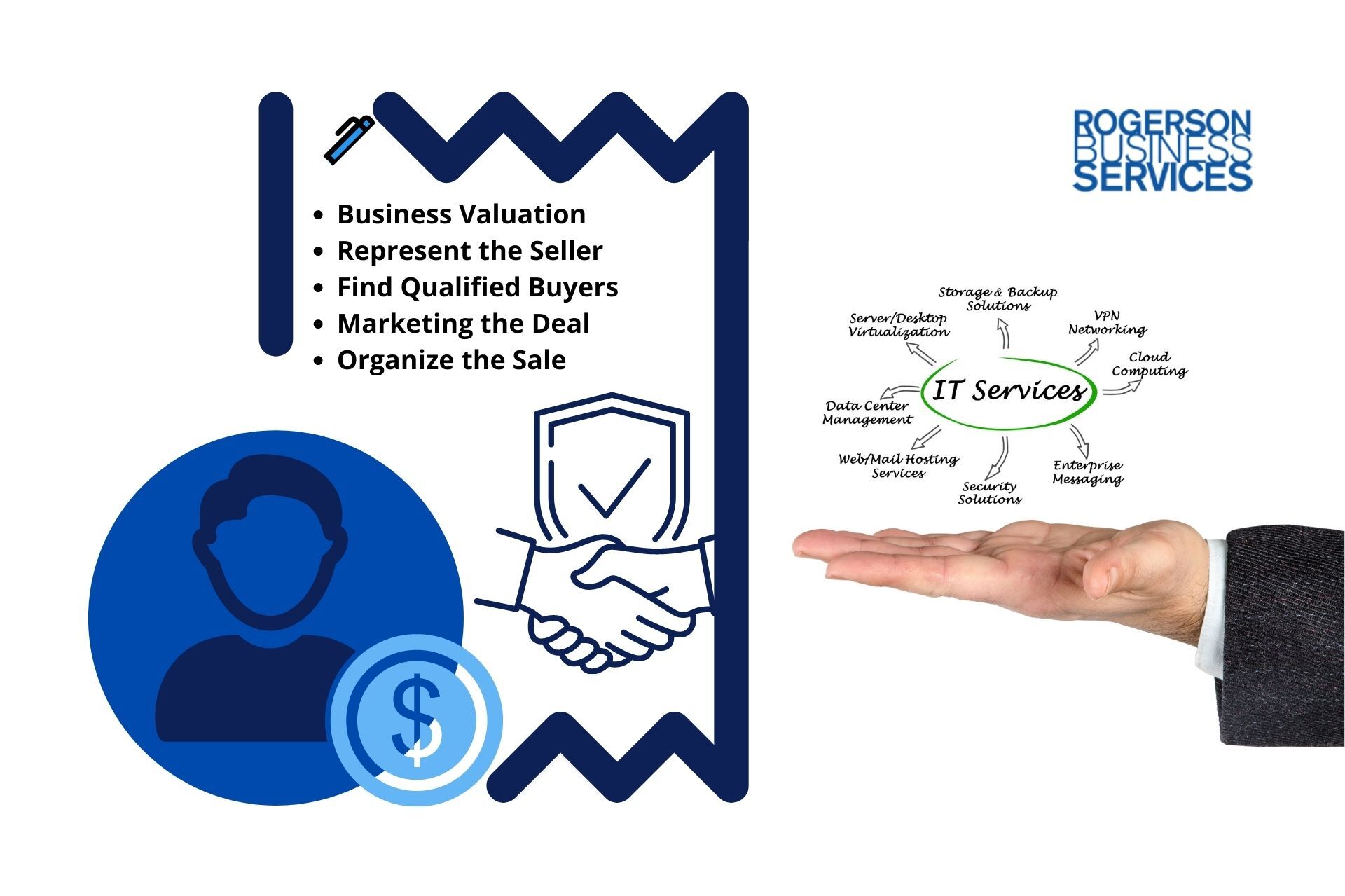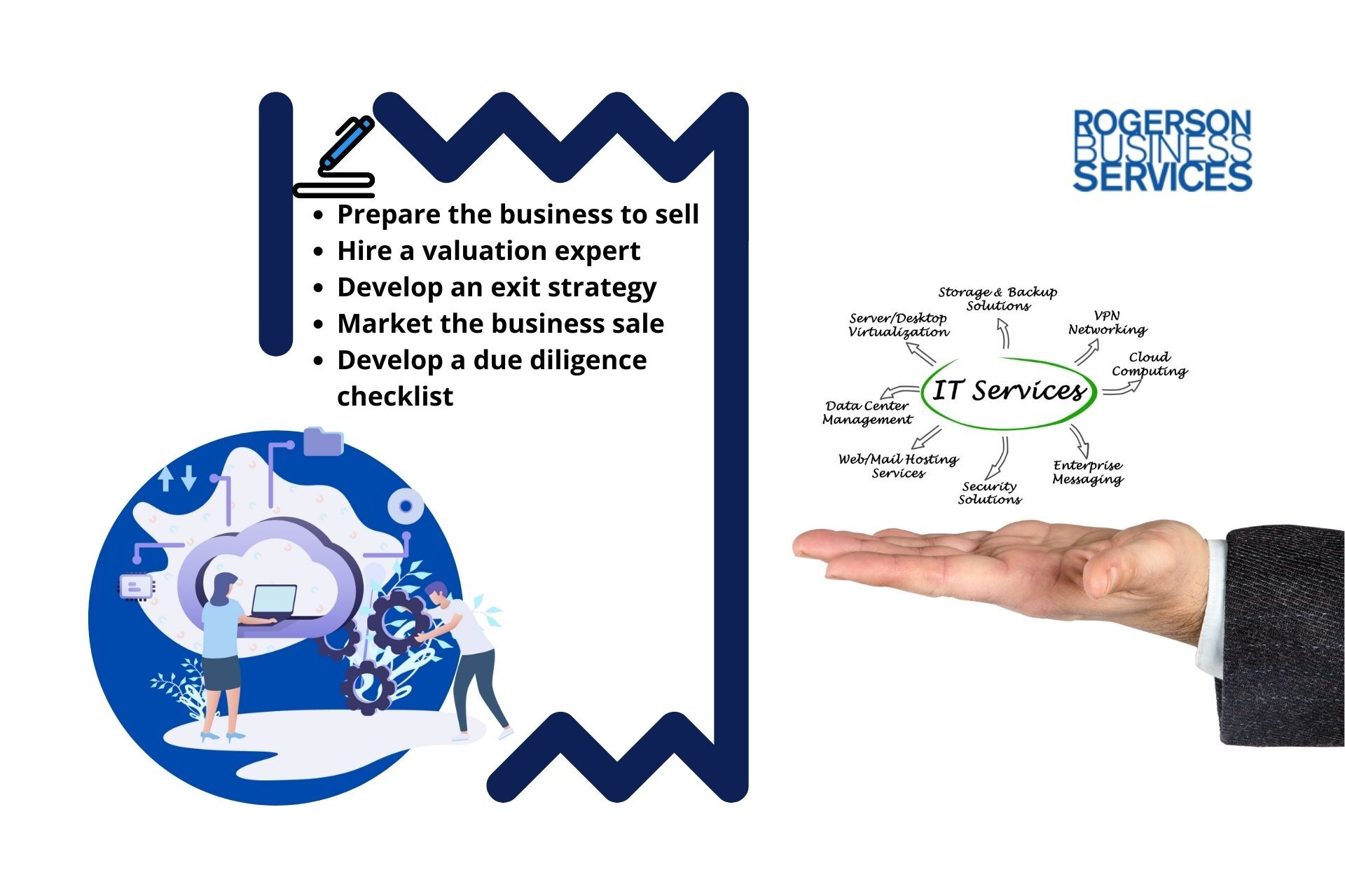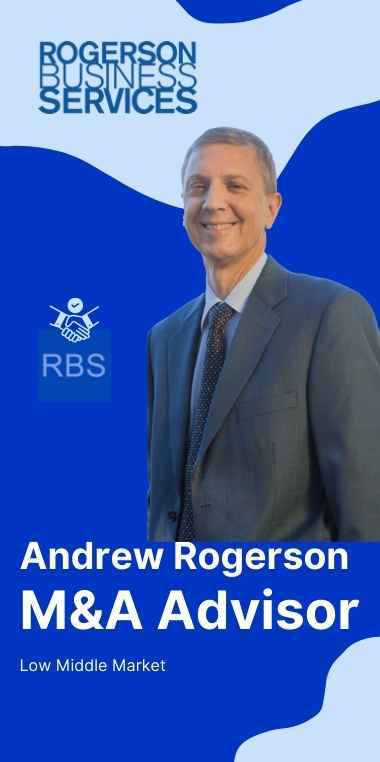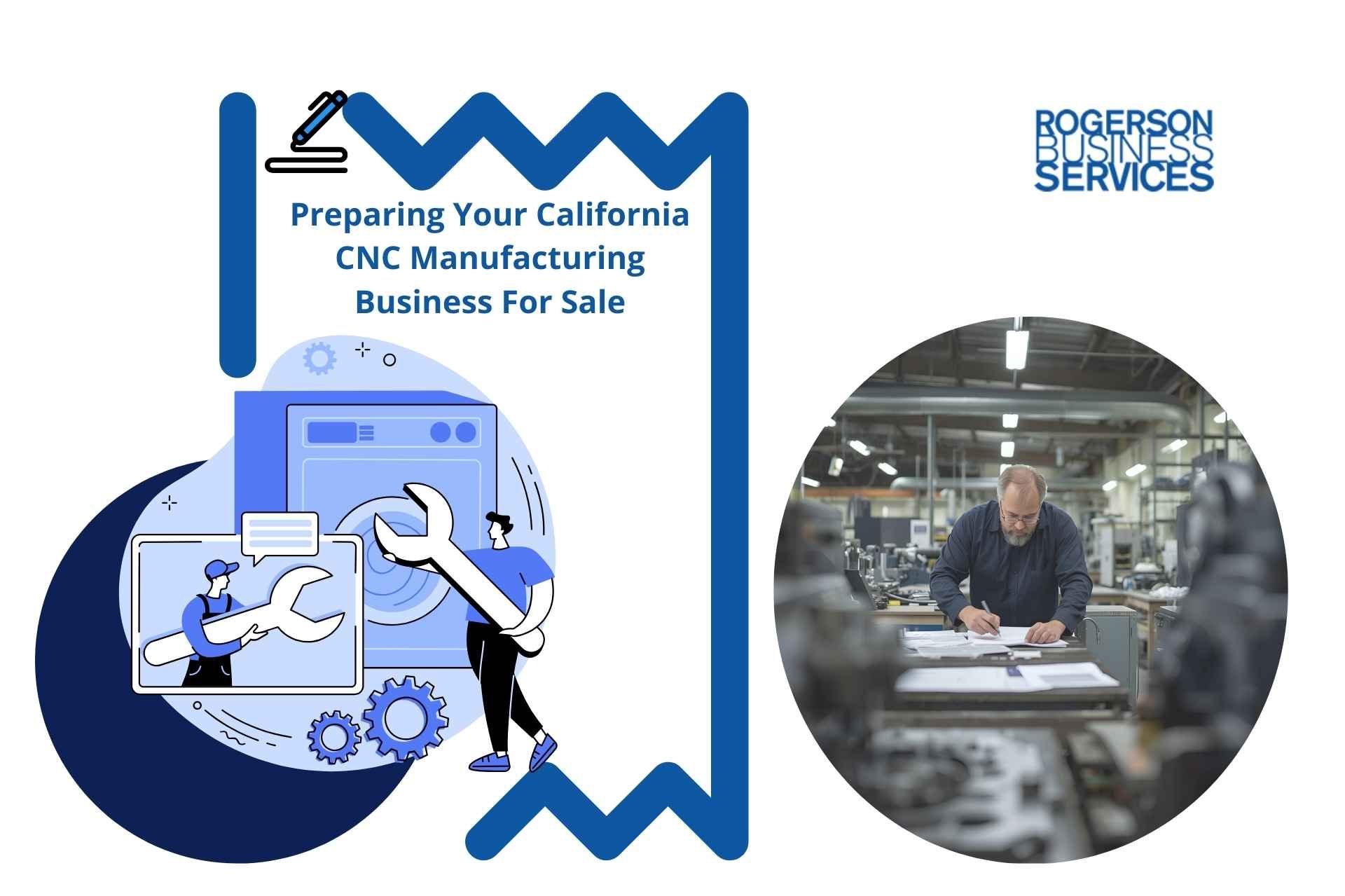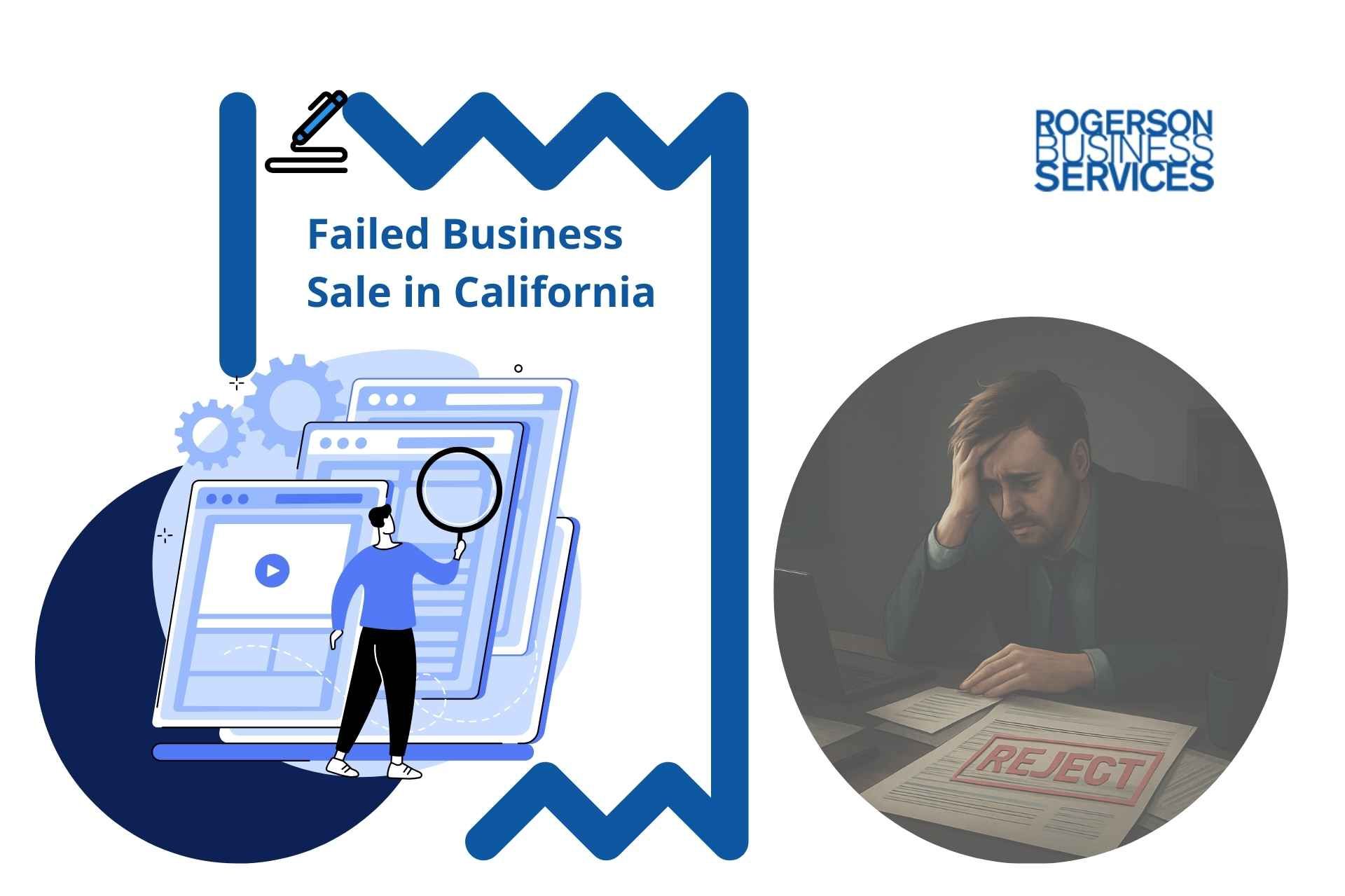The Ultimate Guide To Help Sell An IT Services Business
Considering to sell an IT services business in the lower middle-market segment can be overwhelming in California. Without a proper, well prepared, exit plan, and an IT business broker or licensed M&A Advisor to facilitate the sell-side M&A process, there is no way to guarantee that you made the right decision.
Get The Guide
Sell-Side M&A Guide
Increase Your Chance Of Success!
Guide to Help Exit a Tech Company
Everything you need, all in this sell an IT services business guide
Table of Contents
Sell My IT Services Business
A successful business venture is often the result of years of dedication and hard work. Deciding to retire or pursue other opportunities can be a hard decision to make when you’re invested so much into a business, but selling your IT services business can open up new opportunities for your future and for the future of your IT managed services business.
M&A deals can unlock growth for a company that need additional resources to keep progressing. For 60% of middle market companies involved in M&A deals, mergers and acquisitions are a strategy that proved central to their growth.
Attracting buyers for your information technology managed services company shouldn’t be difficult. The IT field has a strong outlook with a projected growth rate that exceeds 100% for emerging technologies and 50% for software.
If you don’t think that an IPO is right for you, you might wonder how do I sell my business privately. Let’s take a closer look at the steps to take to prepare your business for a confidential sale, how to get the documents needed to sell an IT managed services business together, and why you should work with an IT business broker.
Top Reasons to Consider an Exit Strategy
Developing an exit strategy for your IT companies is part of planning for the future of your business, even if you don’t intend to list your MSP business for sale at the moment. A solid business owner's exit strategy will help you make plans for the future and establish an exit strategy framework to help you get the most out of the time and resources you invested into the project.
You need to create a business exit plan as early as possible. It’s a document you can share with investors to give them an idea of what you want to achieve with your project. In the case of angel investors and venture capital funds, investors often get a return on their investment when you sell the business.
Business exit strategy planning will give investors a better idea of the timeframe and expected returns. Your initial pitch to raise funds for your startup or small business should include an exit strategy, even if you won’t list your business for sale until years from now.
Your exit plan will also act as a framework for structuring your business, deciding how you want to invest resources, and which projects you want to prioritize. IT companies for sale can reach a higher asking price if you adopt a strategy that will boost returns from day one, such as focusing on the most profitable activities or acquiring the right talent.
There are different options to explore for IT businesses for sale, including selling lower middle market companies to a larger firm or stepping back through an IPO. Developing an exit strategy early will help you and the other shareholders decide which strategy makes the most sense.
It can also inform how to structure the business to make it more appealing to investors if you opt for an IPO, or help you invest time and resources into developing a platform that will appeal to middle market companies or larger buyers. For instance, investing in IP and talent will attract businesses with an M&A strategy, and reducing the number of shareholders can also attract buyers who are looking for simpler deals.
Personal plans are another reason to list your business for sale in Silicon Valley or the Bay Area of San Francisco, California as well as Orange County in Southern California. Entrepreneurship requires a considerable investment of your time and energy, and you might decide to pursue a different lifestyle in the future.
You might want to list your IT managed services business for sale so you can retire or have more time for your family. You could also consider selling your MSP business to pursue another opportunity, whether it’s leveraging your experience to obtain a position at a larger IT firm or launch another startup or acquire another business
Selling an information technology company is a major decision. Entrepreneurs often get attached to their projects, and creating an exit plan can make this major change easier.
An exit plan can also reduce risks. You’re no stranger to the fact that the IT industry evolves at a fast pace and that disruptive technologies appear regularly. You might need to exit or sell your business because your main service is about to become obsolete.
The market can move quickly. We’re seeing a seller’s market at the moment, and having a solid business exit strategy can help you time your exit for the right moment and capitalize on your business.
Another reason to create an M&A exit strategy now is so you can evaluate potential offers. You never know when a larger company will contact you and offer to buy your company. Knowing how much your business is worth and how you want to exit this project will help you evaluate the offers you get.

How To Sell A Business - Information & Technology Managed Services
Preparation is crucial if you want to sell a business. Before you sell your IT services business, you will need to complete a few steps to ensure that you list your KIT Managed Services Provider (MSP) business for sale at the right time, find the right buyer, and ask for a reasonable price.
I want to sell my business, how long will this process take? The process of buy or sell a business can take as much as a year, but you should start preparing the sale a few years in advance.
One of the first steps is to complete the business valuation. Assessing the value of your IT services business will help you understand its Fair Market Value.
You will also have to get your finances in order and gather some documents that reflect the financial health of your business for sale.
The preparation process should include a thorough analysis of your business and where its value stems from. Being able to demonstrate how your business generates value will attract serious buyers and can result in a higher price for your business.
You should also approach other shareholders or partners if any during the preparation process. There are some important questions to ask:
- I want to sell my business. How do you feel about selling your shares?
- Would you consider working with a different partner if I sell my shares?
- Who should take over as the new management team?
There are more questions to answer from a financial point of view:
- Does listing your IT services business for sale make sense economically?
- What is the total sum of earnings you can expect in the future if you keep the business?
- Does the present value of future dividends and distributions net of taxes exceeds the proceeds of the sale after taxes and other fees?
- What will you do with the proceeds of the sale? What is the rate of return you can expect once you invest those proceeds?
- What is the total rate of return of the business venture, considering the sum you invested in the project initially?
- If I sell my business how much tax will I pay? How will different pricing scenarios affect what you have to pay in taxes?
There are additional steps to take before you can list your IT consulting business for sale. Companies for sale can attract serious buyers if there is a clear path for growth and profit.
You can boost the value of your IT business for sale by investing in things like IP and new talents, upgrading existing processes, finishing a product you have been developing, going after new clients to diversify your customer base, or even paying off a credit line.
If you’re wondering how to sell your Information Technology Managed Services Business to a big company, you should know that it’s crucial to present your products and services accurately. The best way to communicate about your activities is to determine the right NAICS or SIC code for your business.
Here are some common SIC codes for Information Technology Companies:
- 8999. This code is a broad category for services that don’t fit anywhere else. You will find activities like personal services and consulting in this category. IT consulting companies for sale belong to this category.
- 7372. You should use this code if your software company for sale makes prepackaged software. There are more precise codes you can use within this category for products like utility software, educational software, or games.
- 518210. This SIC code is for data processing, hosting, and other services. A web hosting company for sale would fall within this category, but you can also use this code for a video streaming service or a computer time rental business.
- 611420. You can use this code for activities that involve computer training.
- 541511. If you develop custom software or apps, this code is the one you should use. A mobile apps business for sale will fall in this category if you create customized projects that follow a client’s specifications.
- 511210. IT software companies that resell packaged software, distribute software online, or publish software fall in this category. You can use this code as long as your apps business for sale doesn’t offer customized products.
- 541430. This SIC code applies to any business that offers graphic design services.
- 517410. You should use this code if you’re a carrier or reseller of satellite telecommunications.
- 517312. Wireless telecommunication carriers should use this code. It also applies if you offer cell phone service or a paging service. An ISP for sale falls within this category as long as the service is wireless.
- 811212. If you repair or maintain computers and office machines, you should use this code.
- 541370. This code applies to businesses that offer surveying and mapping services. Technology companies for sale that specialize in Geographic Information System mapping or land surveying should use this code.
- 519130. If your online business for sale provides digital content, it probably falls within this category. You can use this SIC code for activities like publishing news, social media, digital magazines, search engines, and web communities.
- 541512. This code describes computer systems design services. If your technology company for sale designs LAN networks, automated computer systems, or integration systems with CAD, CAM, or CAE, you should use this code.
- 517919. Technology M&A brokers use this code to describe telecommunication services that don’t fall in other categories, like dial-up Internet, VoIP providers, and other ISPs.
- 517311. This code describes wired telecommunication carriers. If you specialize in infrastructure, broadband ISP, or cable TV, you should use this code for your business.
- 7375. You can use this code to indicate that your business offers information retrieval services, for instance, from databases.
When browsing for middle market businesses for sale, potential buyers will use these codes to filter results by business category. California businesses for sale are easier to find if you choose the right code for your primary activity. There are more codes to explore, and we recommend using the NAICS website to find the best SIC code to describe your business, whether you have a call center business for sale, IT managed services provider, or a web design business for sale.
Business Valuation
What is it? Why do I need one if I'm planning to exit a business? What is the business worth?
Preparing for the Sale
I want to sell my business, where do I start? You can start by putting together a due diligence checklist and learning how to value my business.
Due Diligence Checklist
A financial due diligence checklist will help you ensure that everything is in order, and you will have access to important documents the buyer will need for their buying and selling a business checklist.
Here are some items you should add to your due diligence checklist for selling a business:
- Accounting. You should review your accounting records and make sure they follow standard accounting practices. Reconcile accounts and find recent income and cash flow statements. Make sure all these statements are accurate since you will need them to defend your asking price.
- Accounts receivable. An established online business for sale should have a number of unpaid accounts receivable from clients. Put together a list of invoices that are due soon and figure out when you can expect payments.
- Assets. List current assets and assess their value. Your asset list should include equipment, property, IP, inventory, and more. A software business for sale will typically share its catalog product. You should conduct a physical audit of your closing inventory and consider things like the age of the products and warranties.
- IP. Intellectual Property is an asset category you should analyze carefully since its value can be harder to negotiate. Review current patents, their expiration date, and ask yourself if the tech is still valuable.
- Compliance. Your M&A financial due diligence checklist should include documents related to compliance in areas like security and privacy. A cybersecurity business for sale could fetch a higher price by demonstrating the efficiency of its compliance process.
- Client list. Put together a list of your current clients with any existing contracts. Share information about the size of the companies you sell to. Paint a picture of where your sales come from, what kind of services you provide, and where there is room for growth.
- Supplier list. Do the same thing with your suppliers. Your financial due diligence checklist should include your current contracts with your suppliers.
- Data systems. You should review your data systems before you sell your IT business. Do you have access to recent financial statements, payroll, invoices, and more? Will you be able to make data systems available to the new owner?
- Liabilities. You need to provide potential buyers with a thorough inventory of all current liabilities, including taxes, credit lines, loans, outstanding invoices, insurance claims, and more.
- HR. Work with your HR department to put together a list of employees and contractors. Now is a good time to review things like HR policies and training.
Putting together the documents needed to sell a business can be time-consuming. Our free business documents will help you cross all the items on your checklist.
Business Valuation
Once you have put together all these important documents, you can focus on how to calculate the value of a business for sale. How much can I sell my business for? It depends on the EBITDA of your IT services business for sale.
Even though there are different methods of business valuation, EBITDA is the most common metric you will find when browsing for lower middle market M&A deals because it reflects the cash flow potential and profitability of a business. It’s also a convenient metric for comparing the potential of two businesses in the same field.
How much is my business worth? You can use this EBITDA formula to figure it out: Net income + Interests + Taxes + Depreciation + Amortization.
If you’re interested in how to value a business based on revenue, you can also share your net income with a potential buyer.
How to calculate the value of a business for sale is more complex than figuring out your EBITDA. There are a few adjustments and add-backs to consider so that this metric is a more accurate reflection of the potential of your business.
If you’re wondering how to value an IT managed services provider business more accurately, you should take the following add-backs and adjustments into considerations:
- Discretionary spending. This type of spending is an addback you can use to adjust your EBITDA because the new owner will not incur these expenses. Discretionary spending can include travel expenses, perks, and the compensation of a shareholder who will leave the company with the sale.
- Non-operating expenses. These expenses don’t support operations, and the new owner will be able to eliminate them when they restructure the business. Examples include expenses linked to real estate or company vehicles.
- Non-recurring expenses. These expenses are one-time fees that are unlikely to occur again. Legal fees, consulting services, and investment in new equipment or technology fall into this category. If the new owner plans on laying off some of the employees, you can consider their compensation and benefits as non-recurring expenses.
- Accounting adjustments. You can add back things like vendor rebates that won’t apply to the new owner.
Tax Considerations
Now that you have a better idea of how to value a business based on revenue, you should have a range for your asking price. You can consider different pricing scenarios and look into tax liabilities, and create a tax plan.
There are different tax-related questions to consider:
- Selling your interest in a partnership will result in taxes on a capital gain or loss. Will the sale put you in a different tax bracket?
- You can treat unpaid receivables and inventory loss as a capital loss. Can you offset your tax bill with this strategy?
- If you sell assets, you will have to negotiate asset allocation into different categories. Which categories do your assets fall into, and how will your allocation strategy affect your tax liabilities?
- Would selling stock instead of assets make more sense for you?
- Would you be willing to opt for an installment sale to pay taxes over the years?
- Would you consider an employee stock ownership plan to gradually sell your interest in the company and defer taxes?
Learn how to plan an exit for your technology company
Sell-Side M&A
Four step process to market and sell your California lower middle market IT services business
01 Exit Plan - business valuation
Your potential buyers can come from many areas. Employees, individual and group investors, Private Equity Groups, and even competitors who may have an interest in purchasing your business. If a competitor is interested, you don't want to reveal too much information about your business, especially anything that could hurt your business if the deal falls through.
Once you decide to sell, get your business ready, and get help from a trusted and accredited California M&A Advisor.
An M&A Advisor will vet potential buyers to make sure they are qualified and are serious about purchasing your business.
A California Licensed M&A Advisor knows the ins and outs of selling a California business and can help you get your business in shape to get you the best deal.
02 Buyer Analysis
One of the first things your M&A Advisor will do, is help you to create an exit plan. An M&A Advisor knows exactly how to plan an M&A exit strategy. In fact, you might get a M&A Advisor to help you with an exit plan long before you're ready to sell your California company.
An M&A Advisor is knowledgeable about how to calculate the value of a business to sell and will aim to get the highest value for your business. Once everything is ready to go, they'll list your business for sale. An M&A Advisor will be an expert at listing a California businesses for sale.
After your business is listed, the M&A Advisor will handle all the marketing of your business to promote deal origination and get you in front of potential buyers. They'll also set a buyer list and work with you to figure out who to go after for the best value.
03 Deal Origination - marketing
An M&A Advisor will then work to get you as many qualified and motivated buyers of your business as possible.
They will market your business through the proper channels, including social selling and targeting and generating interest. They'll vet and follow up with interested buyers whether off-market or publicly listed.
Once the offers come in, your M&A Advisor will evaluate all offers and conduct market offer analysis to make sure you're getting the best deal.
04 Negotiation & Closing
Buyer Due Diligence
Once a buyer is performing their own due diligence, the M&A Advisor will help you navigate the process to make sure everything is running smoothly. They'll negotiate a Letter Of Intent between you and the buyer to lay out the proposed aspects of the deal. Your M&A Advisor will also help you gather all of the necessary paperwork discussed above. If the buyer asks for additional documentation, your M&A Advisor can help guide you.
As a buyer is going through the due diligence process, they will be on the lookout for red flags about your business. An experienced M&A Advisor is knowledgeable about these warning signs and can help you prevent them. Red flags may include refusing to disclose why you're selling, not allowing time to conduct due diligence, refusal to introduce the buyer to employees, suppliers, landlords, and more.
Definitive Purchase Agreement
The M&A Advisor will oversee the Definitive Purchase Agreement with the help of the transaction attorneys to make sure both parties are happy with the terms. A Definitive Purchase Agreement protects both you and the buyer as it will clearly state exactly what is and is not being sold. It can also protect the buyer from certain liabilities. A Definitive Purchase Agreement will also help you deal with the legal complexities of selling a California lower middle market business.
Once the Definitive Purchase Agreement is finalized, the M&A Advisor will help with any final items that need to be done as part of the closing process including working with a California Licensed Escrow company.
Closing - Finalize the Transaction and Close the Deal
Finally, your M&A Advisor will help prepare the close of your transaction. Once the closing is complete, they'll assist with overseeing the transition of the business change of ownership.
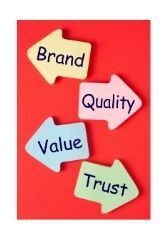
Business Valuation
How much can I sell my business for? Your EBITDA is one of the metrics you can use to set an asking price, but the truth is that cash flow and profitability can change drastically after you sign the business bill of sale.
There are different factors that can affect the value of your business. It’s important to assess these different factors and adjust your price accordingly.
Revenue Data
Look at your revenues over the past five years. Does your current EBITDA reflect historical revenue trends? You could have a million dollar business for sale on your hands if you have data that shows consistently strong revenues.
If your EBITDA recently increased, ask yourself if this growth is sustainable.
Market Trends
If you’re wondering how to sell a business quickly, the answer is to set a price that is competitive. You will have to consider the other offers potential buyers have access to and ask yourself how your offer compares.
If few owners are thinking about selling at the moment, your business could go up in value.
Opportunities for Growth
A recurring revenue business for sale will attract the top buyers in your field, but you need to provide tangible proof that your business can continue growing and generating revenues.
There is a strong outlook in the IT field as companies continue to invest more in digital transformation. For example, an SaaS company that specializes in cloud computing, AI, or edge computing could be worth more due to the high demand and strong growth potential for these technologies.
However, technology is a field that moves at a fast pace, and some products and models might feel outdated.
Customer Base
Buyers will analyze the customer base when looking for a profitable IT services business for sale. Will your current customers remain with your business after the sale?
A small customer base with a few clients that account for the bulk of your sales represents a higher risk and can reduce the value of your business. The same thing is true if most of your customers belong to the same industry since an economic shock that affects this industry could limit your revenues.
Dependence
Buyers will look at dependence beyond your customer base. Is your business dependent on a few key suppliers? Does it rely on a few talented employees who might decide to leave after the merger? You should also consider to which extent operations depend on your presence and take steps to move towards a new model that is less dependent on your presence.
Other Factors
There are other factors that can impact the value of your IT services business for sale. Current legal proceedings, a history of conflicts with your workforce, or a competitor releasing a new product or service similar to what you offer could reduce the value of your business.
There are additional factors unique to the IT field, with things like an outdated infrastructure or issues with security and compliance. For instance, a company with a high risk of a data breach would be worth less.
What Is the Role of IT Business Brokers in Selling an IT Services Company?
IT business brokers can perform buyer analysis and qualify potential buyers. Depending on your unique situation, potential buyers could include corporate investors, strategic investors, or synergetic investors.
IT brokers will also consider competitors, employees, private equity groups, family offices, and other potential buyers. If you’re wondering how to sell a business privately, an M&A Broker can help you reach out to a wide range of private buyers.
If you want to open the sale to more potential buyers, your M&A Advisor will help with originating and marketing the deal. They will also assess the offers as they come in.
It’s best to work with an IT Business Broker when marketing a profitable IT managed services provider business for sale because they can identify serious buyers and limit the amount of sensitive information you share with a competitor in case the deal falls through. They can answer questions about taxes, negotiate different aspects of the deal, and help with the due diligence process.
Valuation is another area where you can benefit from working with an M&A Broker. They can help with valuating your business accurately and recommend adjustments and strategies for increasing value.
Middle market Advisors have experience with negotiation deals with companies that have a growth through acquisition strategy. They know about the latest M&A trends and can identify the right strategic buyers for your business.
Growth through mergers and acquisitions is possible when the buyer finds a business that is a good match for their strategy. Here are a few examples of common M&A strategies.
Improving Performance
A buyer can purchase a lower middle market business and improve its performance by reducing costs, injecting capital, or bringing existing resources to the table. An M&A Broker can help you demonstrate that your business is an ideal candidate for this type of acquisition strategy by emphasizing low margins and low returns on invested capital.
Consolidation
Merging two companies that offer similar products or services results in a more effective entity that doesn’t have to compete on price anymore. The larger company can become a major player on the market and make economies of scale.
Market Access
Some mid market businesses for sale have a game-changing product but need the resources of a larger company for market access. Facilitating market access is a common acquisition strategy. Between 2010 and 2013, IBM purchased a total of 43 smaller companies and achieved a growth of 40% in revenues within the first two years of these deals by offering better market access for different products.
Developing IP
This acquisition strategy is common in the tech field. Tech giants often purchase smaller promising startups to acquire valuable IP and develop new technology with their resources. For instance, Apple entered the autonomous vehicle market by purchasing the startup Drive.ai in 2019.
Transformational Merger
Companies might purchase another business to expand or diversify their offering. They might absorb the platform of the business they purchased to fulfill their own needs. For instance, a software publisher could purchase a SaaS company to have a new model for delivering its products.
An M&A Broker can identify opportunities to pursue these different strategies. They can recommend an exit strategy that leverages your business’ potential for growth in light of these different acquisition strategies and reflect these possibilities when developing sales pitches adapted to the unique strategies of each buyer and how they could derive value from the deal.
Free Business Valuation Guide
Discover more about business valuation and why it matters the most while planning an M&A exit strategy.
IT Business Brokers Can Manage Different Phases and Activities During a Sale
How do I sell my business? Lower middle market IT Brokers can handle the following tasks:
- Assist with business exit strategy planning to develop an exit plan that outlines how to sell my business
- Originate the deal and choose the right wording when creating the listing to sell a business online
- Promote the listing through different marketing activities
- Analyze offers and vet buyers
- Contact private buyers to generate interest through social selling
- Assist you and the buyer during your respective due diligence processes
- Negotiate the terms of the deal
- Obtain a letter of intent, which is a non-binding agreement that outlines the aspects of the sale
- Put together a sell a business contract so the sale can move forward
Due Diligence
There are a few documents needed to sell a business, including a comprehensive buying and selling a business checklist. Middle market business Brokers and lower middle market M&A Brokers can help you put the following documents together so the potential buyer can complete their M&A financial due diligence checklist:
- Income statements
- Records of accounts receivable and payable
- Balance sheets
- Tax returns
- Business activity statements
- Profit and loss records
- Cash deposits and payment records
- Utility accounts
- Loans and credit lines
- Audit work paper files
- Your claims about the business
- Privacy policies
- Inventory
- Contracts with clients and staff
- Partnership agreements
- Lease agreements
- Details of your automated financial system
- Additional proofs that support your valuation
You can start working on your due diligence checklist for selling a business with our free documents.
Warning Signs
Potential buyers will look for warning signs when comparing lower middle market companies for sale. An M&A Advisor can help you avoid these common warning signs.
A buyer will become wary if you fail to disclose important information, including your reason for selling or key financial documents. They will likely back out of the deal if you won’t agree to a trial period or won’t give them enough time to complete their due diligence process.
Middle market sell-side advisor will help you avoid red flags by making sure the potential buyer has access to all the information they need.
Negotiating the Definitive Purchase Agreement
Offering middle-market businesses for sale involves several steps. The
M&A Advisor
works closely with you and your
legal advisor, especially while negotiating and finalizing the
Definitive Purchase Agreement. This Definitive Purchase Agreement helps both parties reach their goals for the transaction and allows no room for error as it completely represents the legal wishes of each party.
A good
M&A Definitive Agreement
is the lynchpin of a good transaction. Both seller and buyer exchange a large amount of information from different sources. This is often over many months of conversations. These exchanges are then condensed, with their individual interests, as best as possible into the Purchase Agreement.
Items a typical Definitive Purchase Agreement may include:
- Treatment of Shares, Options, and any other Securities; if appropriate to the transaction
- Representations and Warranties
- Covenants
- Solicitation (“No Shop” clause)
- Financing
- Termination Fee (or “Break-Up Fee”)
- Indemnification
- Material Adverse Change (MAC) and Material Adverse Effect (MAE) Clauses
- Closing Conditions
The Definitive Purchase Agreement can have potential pitfalls, so your M&A Advisor needs to keep the communication open with the Buyer and their Deal Team as well as the Seller and their Deal Team.
The M&A Definitive Purchase Agreement also needs to include details about tax obligations and consequences, especially if shareholders are involved.
Avoiding Pitfalls if you have a Buy-Sell Agreement
What if the seller is two or more individuals?
Many businesses have multiple owners or shareholders. Getting an agreement from a majority of the shareholders about selling the business and being willing to accept an offer can be challenging. One of the shareholders may not have any interest in selling the business at all or may want something specific most buyers will not be willing to agree. If this is the case, hopefully there is a Buy-Sell Agreement in place as this will outline what each shareholder needs to do. A few years previously I had a transaction with 9 shareholders. One shareholder with a minority interest initially refused to sell. Eventually they changed their mind but it was stressful while this played out.
If no Buy-Sell Agreement is in place and there is tension between the owners and shareholders, the pressure to decide the future direction of the business may be challenging. This article provides additional information for an owner or shareholder with
how to avoid buy-sell agreement pitfalls. To help their clients, M&A Advisors should understand the importance of assumption of liability, so their buyers and sellers know who is responsible for any lingering claims.
The agreement also needs to have information about indemnity clauses regarding operations. For Information Technology Companies, concerns about environmental liability, breaches of warranties, and other issues need to be factored into the indemnity clauses of a Definitive Purchase Agreement.
Buy-sell agreements can be confusing, so it is helpful to learn how to understand buy-sell agreements and how a buy-sell agreement can save a business.
Common Mistakes to Avoid
You might be wondering how to sell a business quickly and might think that doing it yourself is the quickest and most cost-efficient way to conduct the sale.
How to sell a business isn’t something you can learn overnight. Here are some common mistakes a broker can help you avoid:
- Selling takes time. Don’t try and make things move faster. You can plan for a smooth transition if you leave enough time for due diligence.
- Some buyers don’t have access to sufficient financial resources for the deal. A broker can help you verify a potential buyer’s claims and vet serious buyers.
- Some competitors might pose as buyers to obtain information about your business. If you’re interested in how to sell your business to a competitor, a broker can help you disclose the right amount of information.
- It’s important to keep the sale private until the deal goes through. Rumors could cause employees or clients to lose confidence.
- You need an exit strategy that will progressively make your business less dependent on your presence to ensure a smooth transition.
- Selling with limited cash flow or a lack of recurring revenues can reduce the value of your business. If you’re thinking I want to sell my business where do I start, you could pursue new revenue opportunities to boost the value of your business.
- A commoditized business will fetch a lower price since it can only compete on price. Developing a new product that turns your business venture into a differentiated company with a unique offering will help you attract lower middle market private equity investors.
Need help with valuing and selling your IT services business?
Rogerson Business Services (RBS) is an M&A Advisory firm for lower middle market businesses that is built on trust and ethics. Andrew Rogerson, Certified M&A Advisor, can help you find answers to all your questions, introduce you to better opportunities, and manage the buying and selling an IT services company in California process's integrity while keeping every aspect of sales confidential.
Problems in Growth Through Acquisition
How do I sell my business privately? Private buyers often have a growth through acquisition strategy and can benefit from purchasing your IT company because there is a path forward for growth and synergy.
However, there are some issues to consider with this strategy.
Poor Matches
Some M&A deals don’t result in significant growth for the parties involved because the parent company absorbs a smaller business that is not a good match.
Ideally, potential buyers would complete a thorough buy-side due diligence process to identify the best matches for their growth through acquisition strategy and identify the company that can bring them the most value when browsing through a list of IT services companies for sale.
An M&A Advisor can help with this due diligence process and analyze the buyer’s strategy to ensure your business would be a good match.
Conflicts
Change can result in conflicts that prevent growth. The transition can result in anxiety from the workforce that worries about job security or has a hard time adjusting to a new way of doing things.
Clients might not want to commit to new projects because they lack confidence in the new management team.
An M&A Broker will be able to analyze the risks for potential conflicts, help you develop a communication strategy, and take additional steps to ensure a smooth transition.
Competition
The proceeds of the sale mean you will have some cash to reinvest. There are cases where the previous owner of a business uses the proceeds of the sale to launch a new startup that could compete with their old business.
You might also get a job offer from a competitor and use your talent and resources to compete against the business you sold.
These potential scenarios are a risk the buyer will consider. An M&A Advisor can provide peace of mind by negotiating a
Definitive Purchase Agreement with clauses that prevent the previous owner from competing against their old business.
M&A LOWER MIDDLE MARKET ADVISORY
Why Work With Rogerson Business Services?
Business Valuation
Many sellers neglect the business valuation and methodology early in the process, only to become frustrated after the deal has been finalized. Rogerson Business Services can help you understand the value of your business based on different methodologies.
Legal Due Diligence
When selling a business, the legal standing of the business determines the smoothness, efficiency, and speed at which the transaction is finalized. M&A Advisors offer a sell-side M&A process backed by the viability of a California Licensed business or transaction attorney. With a licensed California M&A Advisor, you can be certain the legal documents involved in the sell-side M&A process is detailed and accurate.
Business Analysis
To avoid wasting time with unqualified buyers, get help from a trusted, licensed, and accredited California M&A Advisor. An M&A Advisor will vet potential buyers to make sure they're legitimate and are serious about purchasing your business. An M&A Advisor knows the ins and outs of selling a lower middle market business and can also help you get your business in shape to get you the best deal.
Financial Due Diligence
Our service includes deal team professionals to assist you. From financial to legal documents to tax and procedures, we want to make sure you are covered.
If you have your own in-house team of advisors, Rogerson Business Services can help make the M&A sell-side process as easy as possible by offering insights that help the team understand and are in alignment with the same goals as yours.
Definitive Purchase Agreement
The Definitive Purchase Agreement is usually extremely complex. It is easy to overlook all the terms and legal jargon, but every paragraph is important and duly considered. It is therefore critical to ask questions and ensure you are comfortable with the final set of legal documents you need to sign.
M&A Sell-Side Targeting
Rogerson Business Services provide Mergers & Acquisition M&A Sell-Side Advisory. We zero target off-market, accretive, private equity and strategic buyers with an interest in lower to middle market companies or businesses to maximize incremental growth value.
Final Thoughts
There are a number of reasons to consider valuing and selling your IT services business. You might want to retire, focus on other opportunities, or might simply want to have a pan in case you get an offer.
How do I sell my business? Selling a business is a time-consuming process. It’s important to consider the future of the business and to look at taxes and liabilities.
Preparing for the sale requires the buyer and the seller to complete a thorough due diligence process. There is the question of valuing the business and determining whether it’s a good fit for the buyer’s strategy.
Working with an IT business Broker can facilitate this process. An M&A Broker can help you prepare your business for the sale, vet buyers, and plan for a smooth transition.
Need help maximizing your IT services business value before selling?
Rogerson Business Services (RBS) is an M&A Advisory firm for lower middle market businesses that is built on trust and ethics. Andrew Rogerson, Certified M&A Advisor, can help you find answers to all your questions, introduce you to better opportunities, and manage the buying and selling an IT services company in California process's integrity while keeping every aspect of sales confidential.
FAQ's
Sell-Side M&A
Sell An IT Services Business
Business Valuation
Ten Reasons to Plan a Business Exit Strategy with
Rogerson Business Services
1. Ethics
Rogerson Business Services are members of the M&A Source, International Business Brokers Association (IBBA) and California Association of Business Brokers (CABB) and adhere to their code of ethics.
2. Confidentiality
Rogerson Business Services assists you professionally in a highly confidential manner to protect your personal and financial details.
3. Vetted businesses for sale
Rogerson Business Services have access to an inventory of businesses including unlisted businesses for sale in California.
4. Facilitator
Rogerson Business Services are specialists in business transitions and understand the need to respect all parties in the transaction. There are many steps to value, sell and buy a business. Rogerson Business Services have successfully navigated these steps many, many times.
5. Valuation
Rogerson Business Services can provide you an opinion of value of a business you wish to sell or buy.
6. Due diligence and escrow
Rogerson Business Services has the knowledge to work through leases, franchise agreements, finance requirements, licensing, California escrow requirement and many other items so the sale of a business is successful.
7. Negotiation
Rogerson Business Services practice win/win negotiation skills. Negotiations are rarely perfect and so a win/win approach is the best way forward.
8. Financing and funding
Rogerson Business Services has professional lenders that can assist with finance to successfully buy a business.
9. Resource
Rogerson Business Services is an active member in the associations of the M&A and Business Broker industry including M&A Source, the International Business Brokers Association (IBBA), California Association of Business Brokers (CABB), International Society of Business Appraisers (ISBA) as well as other professional organizations.
10. Closing and transfer
Rogerson Business Services works with you each step of the way. This includes managing the buying or selling of your business through initial negotiations, due diligence, escrow and the all-important closing.
We built this amazing step-by-step-guide to help "Value and Sell an IT Services Company" - it is yours (free)
Rogerson Business Services provide Mergers & Acquisition M&A Sell-Side Advisory. We zero target off-market, accretive, private equity and strategic byers in lower middle market companies or businesses to maximize incremental growth value.

